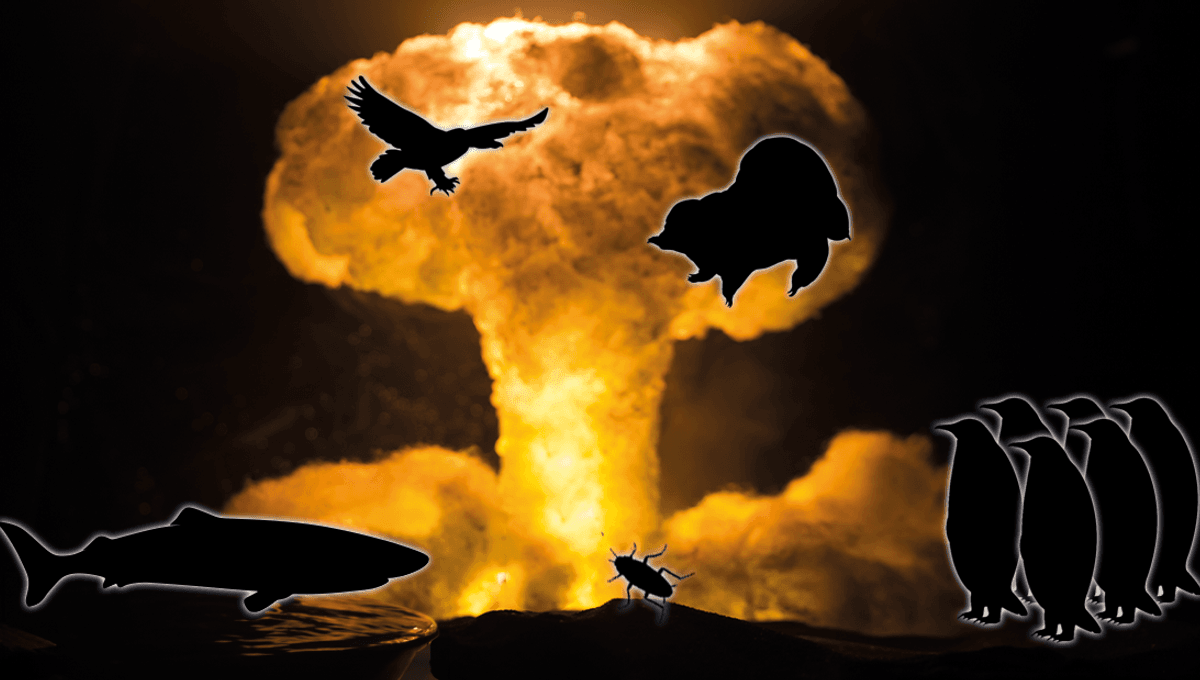
Indulge me, if you will, in a little hypothetical situation. The Earth has suffered a major catastrophic event, human life as we know it has been wiped from the face of the planet and only a few species of living things remain, but which species are up to the task of surviving such an apocalypse? We explore our top five contenders.
Tardigrades
First on our list has to be everyone’s favorite microscopic creature. While we at IFLScience stan a tardigrade, there’s more science to their survival than meets the eye.
Tardigrades have been known to survive in just about every extreme environment Earth can throw at them. According to National Geographic, they are the “most indestructible animal on Earth”. They can claw their way through sand dunes, survive being frozen, and even live at high altitudes.
Scientists have figured out that a protein called Dsup can protect the genetic material in each of a tardigrade’s cells making a tiny shield against dangerous particles. They can survive high levels of radiation that most other creatures could not – there is even some suggestion they could be on the Moon.
Cockroaches
Moving onto our second animal, it would be a shame not to mention the humble cockroach. Since they survived the asteroid impact that wiped out the dinosaurs, they’ve got a pretty good chance of surviving the next global catastrophic event.
Part of the reason for their success is both their size and their dietary habits. These flat-bodied insects can squeeze themselves into tiny crevices other critters can’t reach for protection, including inside soil. Plus, rather than relying on one type of food source, they will pretty much consume anything even if it isn’t technically food.
Cockroaches are also incredibly resistant to toxins such as insecticides, making them one of Earth’s harder creatures to get rid of.
Vultures
Depending on the conditions of the disaster, some animals could actually benefit from a global crisis. Vultures, for example, may also be able to survive something like a zombie apocalypse and with plenty of undead carrion around, could even thrive. They even have specially adapted stomachs with acid capable of digesting some pretty nasty bacteria, so potentially would be able to stomach some zombie guts.
Sharks
We’ve not turned our attention to the sea until now. All manner of frankly unusual looking creatures survive down there and are specially adapted to life in the darkness and extreme pressure that comes from the deep ocean. While a potential apocalypse could cause all sorts of issues for the ocean, such as acidification or extreme sea level rise, some creatures might just cling on.
Greenland sharks are extremely long-lived, with known individuals surviving more than 400 years. They are known to have lived through both World Wars and nuclear weapons tests and the evidence is right there in their eyes. Sharks have also been around on Earth since before trees, and before Saturn had rings, so there’s a good chance at least one of the 500 species of shark would survive.
Emperor penguins
Trying to include larger animals in this list is especially difficult. Many have evolved especially niche adaptations and would not survive in a habitat changed by global disaster. Something like a bear, while it could hibernate through winter, would still need a lot of food to survive once it finished hibernating. Camels are also capable of surviving without food or water for periods and can survive heat extremes.
On the opposite side of the scale, the wildcard entry at number five is the emperor penguin. Emperor penguins can survive some of the most brutal cold temperature extremes the Antarctic can throw at them, including wind speeds of 200 kilometers (124 miles) per hour and temperatures of −50°C (−58°F). They can also survive several weeks without eating by living off fat reserves. They occupy some of the most remote areas on Earth and therefore could be able to avoid zombies or disease spread by simple logistics.
Source Link: The Top 5 Animals Most Likely To Survive Global Disaster